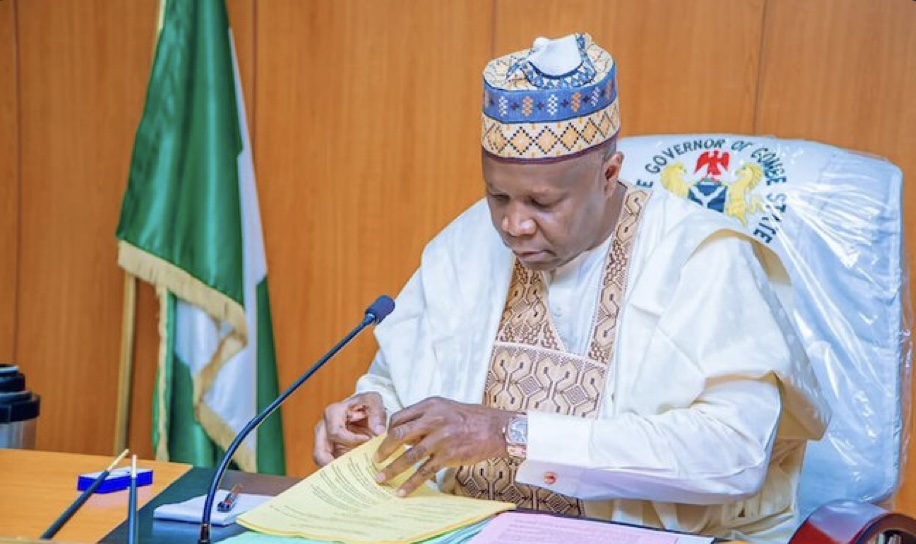Weak Naira, Local Refining Responsible for Nigeria’s $3.73 Billion Balance of Payment Surplus

Economic analysts have attributed Nigeria’s $3.73 billion balance of payments (BOP) surplus in the first quarter of 2025 to the depreciation of the naira and the augmentation of domestic fuel production from the Dangote Refinery.
The apex bank’s report indicates that data from Q1 2025 reveals a current account surplus of $3.73 billion, slightly lower than the $3.80 billion recorded in the preceding quarter.
Furthermore, the data illustrate that this figure is marginally higher than the $3.69 billion registered in the corresponding period of 2024, following months after Nigeria reported a surplus of $6.83 billion in 2024.
According to information from the Central Bank of Nigeria (CBN), the goods account balance stood at $4.16 billion in the first quarter of 2025, an increase from $2.62 billion in the fourth quarter of 2024.
These gains largely stemmed from enhanced trade performance, with non-oil exports surging by 30.39 percent to $2.66 billion and gas exports rising from $2.10 billion to $2.66 billion.
Simultaneously, non-oil imports decreased from $7.37 billion to $6.77 billion during the quarter. The secondary income account also sustained a substantial surplus of $5.29 billion, as reported by the CBN.
The fortified goods account position was further bolstered by a 9.79 percent escalation in total exports, reaching $13.91 billion in Q1 2025. Conversely, imports diminished to $9.75 billion from $10.05 billion in the previous quarter, primarily due to a reduction in imports of petroleum products and other non-oil goods.
Regarding the financial account, the CBN documented a balance of $7.58 billion in Q1 2025, slightly lower than the $7.82 billion recorded in Q4 2024.
This decline was chiefly attributed to a pronounced reduction in portfolio and other investment liabilities. The bank elucidated that significant divestments and the reversal of non-residents’ investments in CBN bills, alongside substantial external debt servicing and a notable drop in loan liabilities from other depository corporations, were pivotal factors behind the decrease.
Dr. Muda Yusuf, Chief Executive Officer of the Centre for the Promotion of Private Enterprise (CPPE), remarked to Nairametrics, “Our largest imports in recent times have been non-oil. Import is dropping because of exchange rate depreciation. Depreciation of the naira makes import more difficult for importers,” he asserted.
“With the full commencement of the Dangote Refinery, numerous fuel importers are beginning to look inward.
“For me, the decrease between the last quarter and this in the balance of payment surplus is quite marginal,” he added.
Another expert, Dr. Adam Abudu of the Society for Peacebuilding and Economic Advancement, echoed similar sentiments, emphasizing the necessity for the government to bolster domestic investors.
He underscored the importance of consistency with the government’s ‘Nigeria First’ policy.
“We can say one thing and mean another. If you have a policy to encourage domestic investors, you should be consistent with it. That’s how it should be,” he stated.
“We have Dangote, who constructed a refinery. This refinery is currently producing substantial quantities of oil for both domestic consumption and export.
The government needs more Dangote Refineries to maintain a continuous balance of payment surplus,” he added.
He also commended President Bola Tinubu’s administration’s reforms.
“The ongoing reforms are yielding results, as evidenced by two consecutive quarters of balance of payment surplus.
“We must sustain the momentum for the upcoming quarters as well,” he added.
The $3.73 billion balance of payments surplus recorded signifies that the nation’s total exports exceed its imports.
Data from the National Bureau of Statistics (NBS) reveals that Nigeria achieved a trade surplus of N5.17 trillion in Q1 2025, representing a 51.07% increase from the N3.42 trillion posted in the previous quarter.
The report also highlighted that total trade for Q1 2025 reached N36.02 trillion, marking a 6.19 percent increase compared to the same period in 2024. The NBS further reported a sharp decline in Nigeria’s petrol import bill in the first quarter of 2025, dropping to N1.76 trillion from N3.81 trillion recorded in the corresponding period of 2024.
This decrease is largely attributed to enhanced domestic supply from the Dangote Refinery, which has continued to scale up operations.
In a related development, the Nigerian Upstream Petroleum Regulatory Authority (NUPRC) disclosed in its latest crude oil and condensate production report that Nigeria’s crude oil production declined to 1,452,941 barrels of oil per day (bpd) in May 2025.









